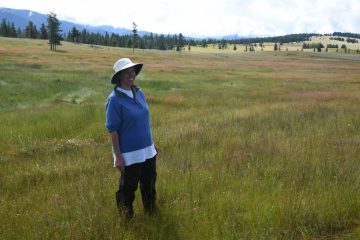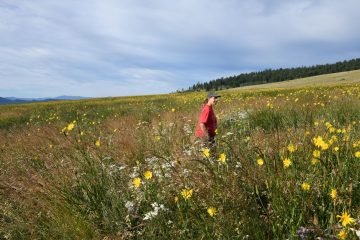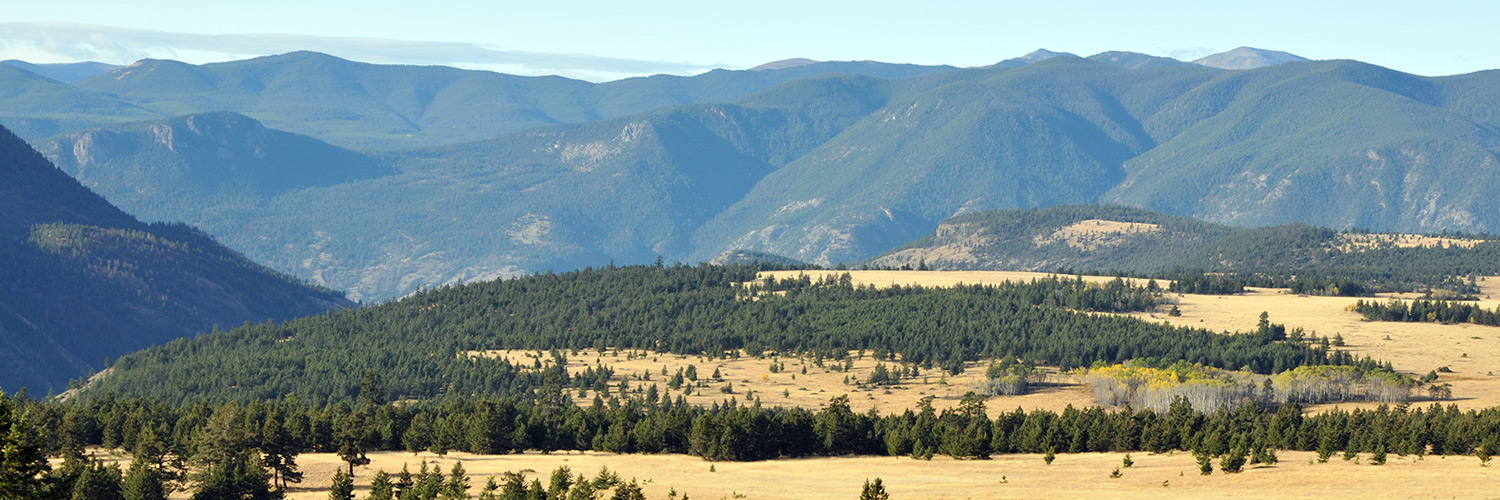Dr. Karen E. Hodges
Professor, Conservation Biology
Associate Head, Biology, Graduate Studies
 Major Research Interests
Major Research Interests
Human activities are causing species extinctions, extensive loss of habitats, damage to existing wild areas, and global changes in climate that are altering the distribution, abundance, and persistence of many species. Further, increases in fire frequency, severity, and size are structuring forest landscapes for decades to come.
As a conservation biologist, I focus my research on how habitat quality and wildfire affect species interactions and endangerment of at-risk species. I am also interested in understanding population dynamics at the periphery of species’ ranges, as these populations may be more vulnerable to the various threats facing many of the world’s species or may contribute to range expansions as species respond to rapid climate change. Another major focus is on how animals use recently burned landscapes, especially the heterogeneity that occurs after particularly large and severe wildfires. I’m interested in how fires and post-fire management enable or prevent imperiled species from persisting in these landscapes.
The majority of my field-based research projects examine terrestrial vertebrates in western montane forests and the sage-steppe habitats within British Columbia. Current projects in my lab focus on Canada lynx, snowshoe hares, owls and raptors, and songbirds. Previous students have worked on caracal, bobcats, cougars, small mammals, yellow-breasted chats, grassland plants, painted turtles, marten, kestrels, gophersnakes, grasshoppers, and moths.


Research projects by people in my lab group often require demographic, behavioral, genetic, or GIS tools to examine how species respond to different habitat types and landscape patterns. Other projects address the scientific effectiveness of conservation laws and policies, particularly the critical habitat provisions of the U.S. Endangered Species Act and the Canadian Species at Risk Act.
If you are interested in joining my lab group, please explore these pages further.
I welcome working with undergraduate students, graduate students, and postdoctoral researchers. I am committed to fostering an inclusive, diverse lab and supporting students from groups that are under-represented in science.
Research dissemination
I value disseminating research results via media and outreach to governments and affected groups, rather than just in the traditional scientific outlets of publications and conference presentations. I have given numerous media interviews on topics such as wildfire, climate change, and species at risk of extinction. I have also presented results to government biologists and policymakers, non-profit groups, and industry.
These efforts led to the President’s Award for Public Education through Media, UBC, 2024.
Education and Honours
Bert Brink Canada Research Chair in Conservation Biology
Aldo Leopold Leadership Program Fellow www.leopoldleadership.org
Ph.D., University of British Columbia, Vancouver (Zoology)
B.A. Summa cum laude, Phi Beta Kappa, Sigma Xi. Mount Holyoke College, Massachusetts (English and Biology double major)
Publications
Select publications can be found here.
Teaching
Awards for teaching
Outstanding Instructor, Faculty of Science, 2023-2024.
Golden Apple Award, for Supporting Learning Outside the Classroom, 2020.
“Thank a prof award”, 2015.
Regular courses taught
Other Activities
- Subject Matter Editor, Ecological Applications
- Associate Editor, Fire Ecology
- Former Senior Editor, Biodiversity and Conservation
- Ecology in Society: policy and outreach activities
Some Useful Links
- Species at risk in the Okanagan region of B.C.
- The Biodiversity, Resilience, and Ecosystem Services Institute at UBC Okanagan
- Applying for graduate studies at UBC Okanagan
All photographs used on this website are © Karen E. Hodges; not for reproduction without permission.
